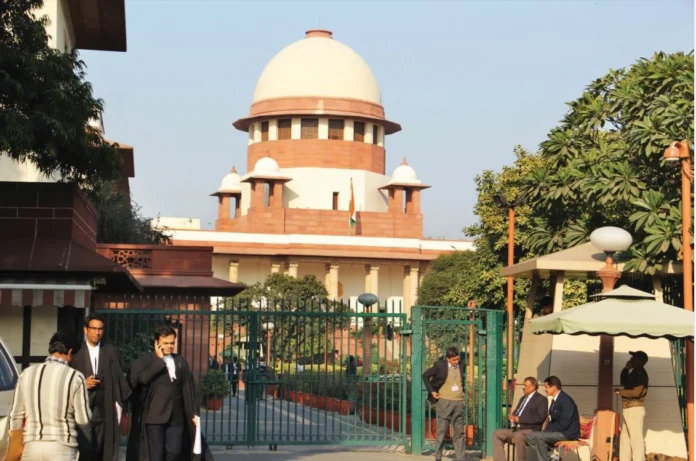The Supreme Court has upheld an order passed by the Punjab and Haryana High Court, which dismissed with cost a public interest litigation seeking to make Karwa Chauth festival compulsory for all women, including widows, divorcees and those in live-in relationships.
Terming the PIL filed before the High Court as motivated and frivolous, the Bench of Justice Surya Kant and Justice N Kotiswar Singh observed on Monday that such pleas were funded by certain actors who never came forward.
Refusing to interfere with the High Court verdict, the Apex Court said in the current plea, the petitioner failed to disclose any law which provided for observation of the festival by sections of women allegedly deprived of the privilege to celebrate.
It further observed that the High Court had taken a lenient view and only imposed cost of Rs 1000 on the petitioner.
The Bench said it hoped the High Court would take exemplary action, in case the petitioner tried to file any such petition directly or indirectly in future.
Following the disinclination of the Apex Court to entertain the plea, the petitioner’s Counsel sought permission to withdraw the plea with liberty to approach the High Court again.
The top court of the country, however, dismissed the petition, while refusing to grant any liberty.
Petitioner Narender Kumar Malhotra had approached the High Court seeking a declaration to make the celebration of Karwa Chauth festival compulsory for women, irrespective of their status (widows, separated, divorcees or in live-in relationship).
He contended that some sections of women, like widows, were not allowed to perform the Karva Chauth puja, which showed a discriminatory attitude.
The petitioner prayed for directions to both the Central and Haryana government to carry out amendments in law to ensure participation of all classes of women in the Karwa Chauth puja held on the day of the festival.
He further sought directions ensuring that refusal of any person to such women participation be made punishable.
The High Court rejected the PIL on the grounds that the issue lay in the domain of the legislature. When the petitioner sought liberty to withdraw the plea, the High Court dismissed it as withdrawn and imposed a token cost of Rs 1000 on the petitioner.


